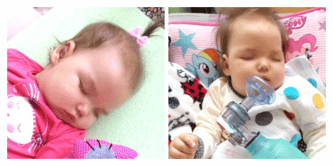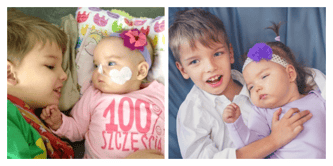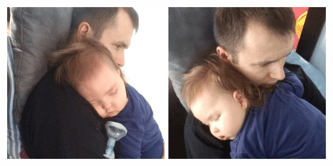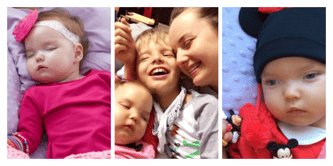
The Thief of Lives
Fundraiser goal: Zakup urządzenia do rehabilitacji, by spowolnić postęp choroby
Fundraiser goal: Zakup urządzenia do rehabilitacji, by spowolnić postęp choroby
Fundraiser description
I can not describe everything - quietly begins mom. Long and sleepless hours of pain, fear and uncertainty incomprehensible next day. I can not accept the fact that the thief tiny life Pauly and Maxi increasingly tightens loops suffering, and I can not help you.
A difficult story, a story full of pain about two vulnerable siblings both suffering from a life limiting and fatal genetic disorder. Crucial cells in their tiny bodies are struggling to absorb oxygen which would eventually lead to their deaths. Doctors are wringing their hands, saying that there’s nothing more they could do, while the parents are fighting to prove that simple therapy, supplements and dedicated care can, if given a chance, work miracles. Pola’s rare but radiant smile, despite the pain, is a demonstration of her resilience; it gives her parents hope and the determination to carry on with the search for a treatment that could slow the progress of the condition.
When Max was born, doctors didn’t know what was wrong with him. His reactions were atypical and puzzling. Max didn’t have a proper diagnosis for a long time and due to a difficult birth, he was misdiagnosed with a Cerebral Palsy. His developmental leaps, results of therapy and an ambiguous MRI scan result, puzzled professionals. Numerous consultations in various Medical Centres in Poland came to an end when Pola was born. Despite clear results from tests carried out before and during pregnancy, it turned out that Pola was very ill. Both Pola and Max suffer from an ultra-rare mitochondrial disease – Leigh Syndrome. Every cell of human body has its mitochondria – a kind of a powerhouse responsible for generating the energy. Leigh Syndrome impairs the mitochondrial function which can cause the failure of muscles, brain, eyesight, kidneys and heart and typically results in death.
Pola’s condition is worse than Max’s. It all started with breathing problems that seemed harmless when she was almost 4 months old. She has been close to death about four times in her anxious parents’ arms and in front of her older brother, Max. Max often cries. This is the only way he knows, of showing his anxiety – he knows his sister could die anytime. A new tube connected to Pola’s body, the apparent pain on her little face and the sadness in his Mum’s eyes, says it all. Tears and stress make his own cells die out quicker – putting him at risk too.

Max’s condition also affects cells responsible for his gross and fine motor skills. After 7 years of living with a Cerebral Palsy diagnosis, his treatment was changed. The only thing left now, is to try and save as much as is possible of Max’s cells. He is now 8 years old; he can’t walk and he communicates only through his AAC and other alternative communication methods. The progress of his condition is much slower than Pola’s. Unfortunately he regularly witnesses his sister’s resuscitation, and this has made him more anxious and has worsened his condition.

His parents however, have to deal with the difficult task of discussing the condition with him and the fact that it would, inevitably lead to death. But since witnessing his sister’s first resuscitation, he doesn’t even want to talk about the condition; all he wants to do is run up to Pola’s bed to give her the biggest hug he could possibly give.
Treatment with EPI is currently being tested and there is hope that it may be able to slow the condition’s progress. All that Pola and Max’s parents wish for is to buy essential equipment for their children and provide them with regular therapy and supplements. They hope and pray that perhaps one day that the monstrous disease that has taken over their children’s bodies can one day be overpowered. Until then it is fight with suffering.
All life is precious – you cannot get used to your child’s disease, to pain that doesn’t have a cure. Please don’t wait … help us save our children’s lives.